The Volkswagen Jetta TDI has been immensely popular for years, this month marks the first time we’ve experimented with one here at Diesel Power. Our test candidate is an 2002 Volkswagen Jetta TDI with the rotary-pumped 1.9L four-cylinder (ALH engine code), and 217,000 miles on the clock. It’s the resident parts runner for Randall’s Performance in Gladstone, Illinois—a place where vehicles don’t stay stock for very long. With an 1,100hp triple-turbo common-rail Dodge; 700hp Fummins tow mule; and shortbed, regular cab, race-ready Ram already under the roof, modifying the little V-dub came naturally.
Since this was Randall’s first go-round with a Jetta TDI project, the crew contacted a company that arguably knows more about Volkswagen diesel performance than anyone else: Kerma TDI. It all started with an ECU tune, then the factory automatic transmission was ditched in favor of a five-speed manual, followed by bigger injectors and a tweaked injection pump. Lucky for us, Randall’s Performance has a load-cell SuperFlow dyno at its disposal, which made it easy to track the car’s progress. Follow along as we add 60 percent more horsepower to America’s favorite little diesel.
Better Mileage, Improved Zip, and More Parts On The Way
Although the mileage increase we saw was minimal, Kerma TDI was true to its word that the upgraded injectors had the potential to increase mpg. We went from 46 mpg to 47 mpg on the highway, but we have to admit we only tested one tank on the highway. With nearly 150 hp on tap now, it’s hard to keep your foot out of it. Although truck guys may view our 54hp gain as not being a lot, we’ll remind them that given the Jetta’s power-to-weight ratio, we effectively transformed an 18-second car into a 15-second one this month.
Unfortunately, the Jetta’s newfound power (and especially its torque) has wreaked havoc on the clutch that came with the five-speed manual transmission. We’ll address a slipping clutch next time, as well as add the latest turbocharger available for ALH engines.
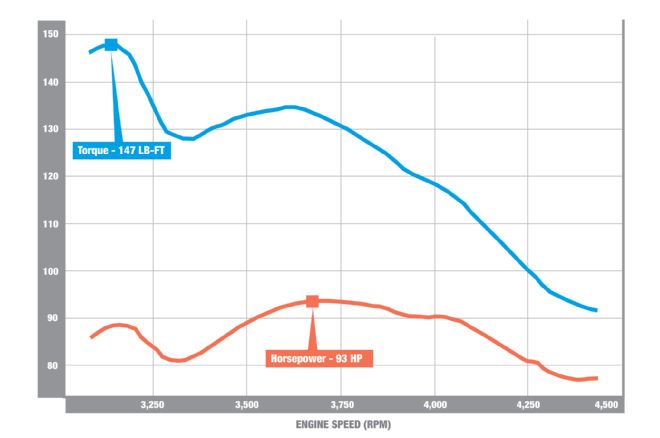
| 2002 Volkswagen Jetta TDI Base Dyno Run
Unfortunately, the Volkswagen Jetta 's newfound power (and especially its torque) has wreaked havoc on the clutch that came with the five-speed manual transmission. We’ll address a slipping clutch next time, as well as add the latest turbocharger available for ALH engines.
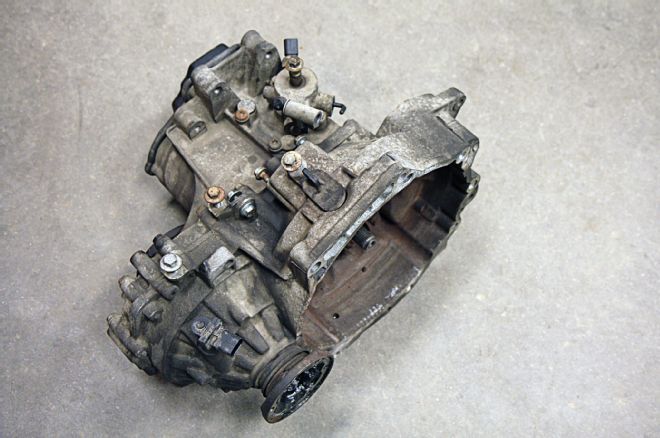
| 2002 Volkswagen Jetta TDI Stock Auto Transmission
After the 01M automatic let loose, its replacement was this 02J five-speed manual unit from the same era Jetta TDI. Swapping out the automatic for a manual transmission is common in the Jetta world. For one, the cost of replacing the automatic with a new one often costs more than installing a simpler, more reliable standard transmission. And two, the manual transmissions have proven to last for hundreds of thousands of miles.
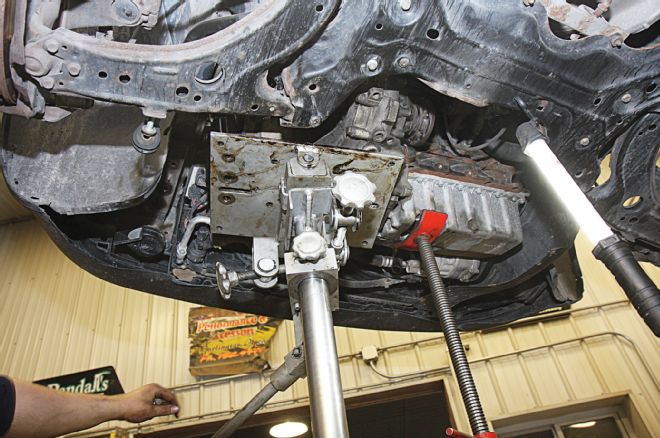
| 2002 Volkswagen Jetta TDI 5 Speed Transmission
For roughly $3,000, Jason’s Turbo Diesel Repair in Oregon, Wisconsin, performed all the work of getting this five-speed into the ’02. Afterward, mileage immediately increased from the low 40s (mpg) to mid-to-upper 40s on the highway.
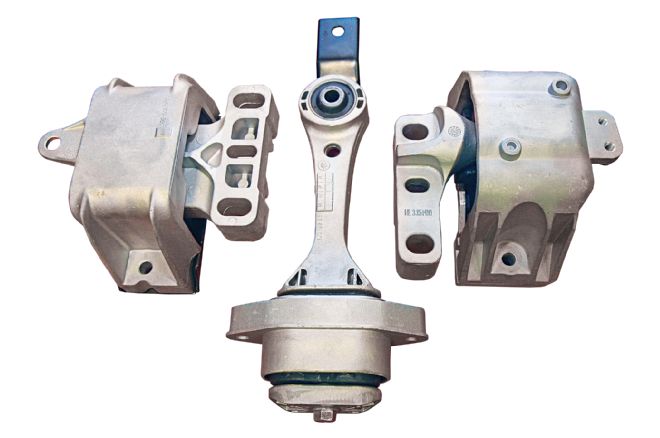
| 2002 Volkswagen Jetta TDI Motor Mounts
Replacing the 217,000-mile, 12-year-old motor mounts were these Street Density units from Kerma TDI. Built to 034Motorsport’s specifications by OE suppliers, these solid rubber mounts come in a complete set, are 25 percent stiffer than stock, and provide a noticeable damping improvement over the factory versions.
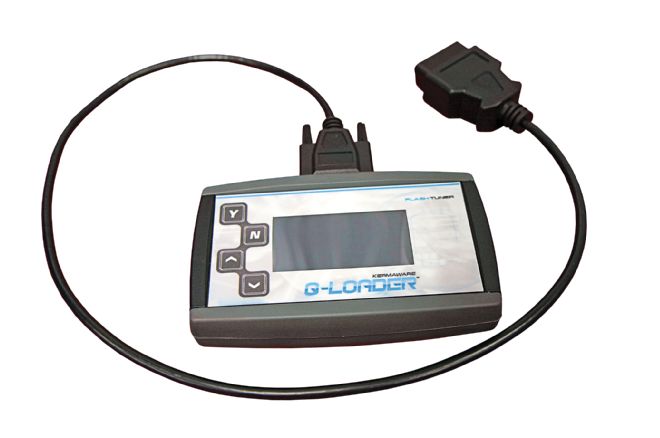
| 2002 Volkswagen Jetta TDI Q Loader Programer
Next, it was time to see how big of a difference a tune could make (see page 142 for the tuned dyno results). Using this Q-loader programmer from Kerma TDI, a custom file was uploaded to the car’s ECU. The programmer itself connects to the diagnostic port, stores the stock tuning file, and can hold up to two modified ECU files. It can also read (and clear) diagnostic trouble codes.
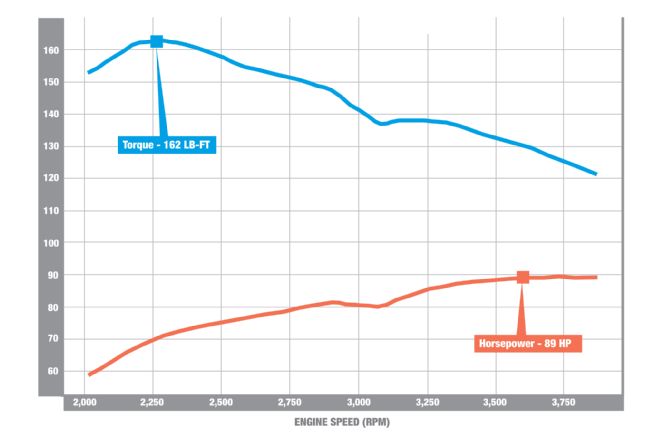
| 2002 Volkswagen Jetta TDI Tranny Swap Dyno
To give you an idea how much horsepower was lost through the automatic transmission, the Jetta was dyno’d right after the transmission swap was complete, and we decided to run the car with no programmer in the mix. Here you can see it made 89 hp with the manual transmission and no aftermarket tuning vs. 93 hp with the automatic transmission and a hot tune. That’s only a 4hp difference, and the car was actually making 15 lb-ft more torque.
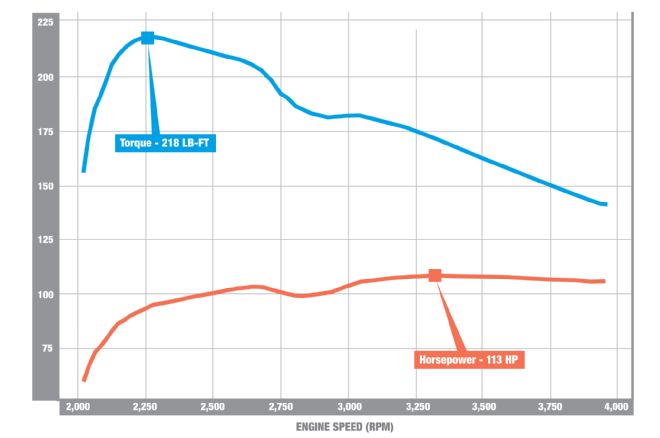
| 2002 Volkswagen Jetta TDI After The Programer Dyno
Picking up 24 hp and 56 lb-ft, the Jetta TDI was now getting 113 ponies to the front wheels thanks to the Q-loader programmer. While 24 hp doesn’t seem like a lot, it would’ve effectively shaved nearly a second and a half off the 3,200-pound car’s quarter-mile sprint (18 flat vs. mid-16s).
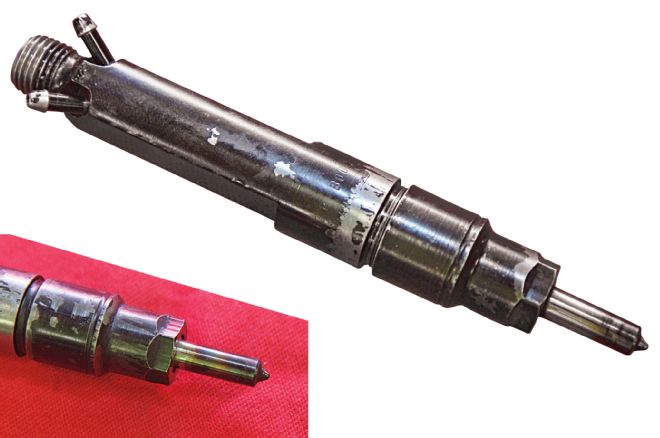
| 2002 Volkswagen Jetta TDI Injectors
Turning their attention to the injectors, the guys at Randall’s once again contacted Kerma TDI. With plans to eventually make in excess of 150 hp with the car, Kerma sent Randall’s a set of its Stage 1 Bosio DLC 1019 injectors, which can support up to 160 hp with the right modifications. The injectors feature brand-new Bosio nozzles; the DLC acronym stands for diamond-like carbon coating. The coating covers all the internal needle’s sliding surfaces to reduce friction and is said to double the service life of the nozzle. The DLC coating is utilized (and recommended) to help the nozzle needle survive ULSD fuel’s lack of lubricity.
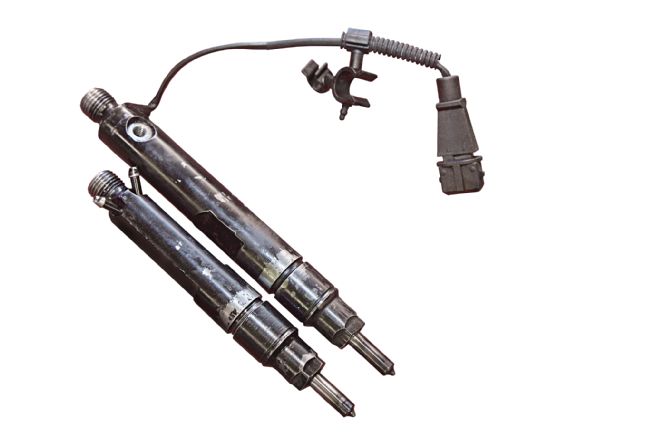
| 2002 Volkswagen Jetta TDI Injectors 02
Notice the injector on the right is taller and equipped with a wiring harness? This is the number 3 injector in the 1.9L ALH engine, which features the needle lift sensor.
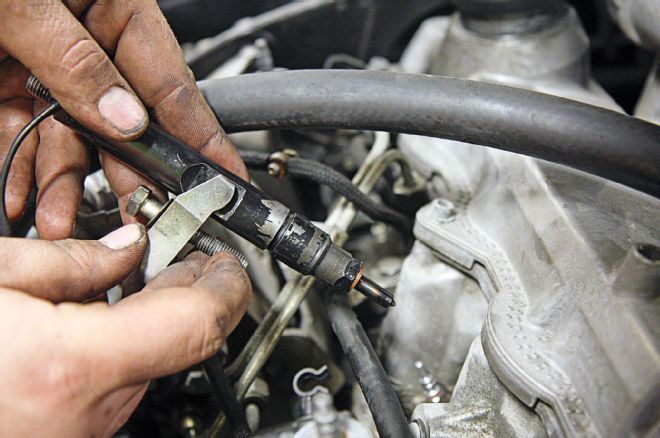
| 2002 Volkswagen Jetta TDI Injector Tool
Making removal and installation of its injectors as easy as possible, Kerma TDI supplied a puller tool with them, as well as all-new OE sealing washers. There is also good peace of mind knowing that all injectors are flow tested and balanced as a set before being shipped out.
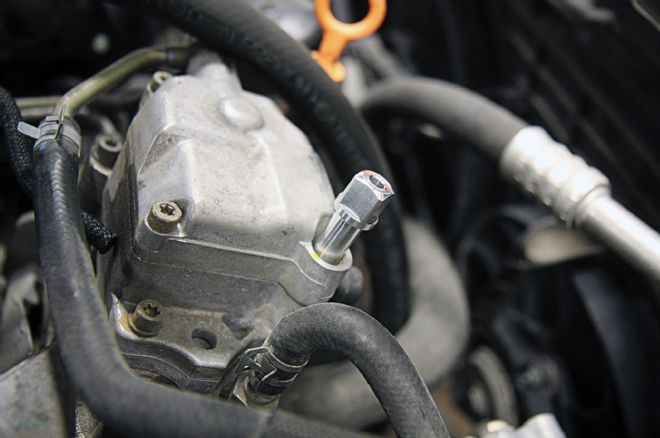
| 2002 Volkswagen Jetta TDI Adjusting The Injectors
In order to take full advantage of the new injectors, the VE rotary injection pump’s injection quantity had to be adjusted. Kerma TDI supplied the T-30 Torx bit socket required to access the pump’s quantity adjuster. To make a long story short, injection quantity levels are all over the place from the factory, with some having higher and lower fuel quantity values than others. For more fuel (which we needed), we moved the quantity adjuster arm toward the driver side of the car.
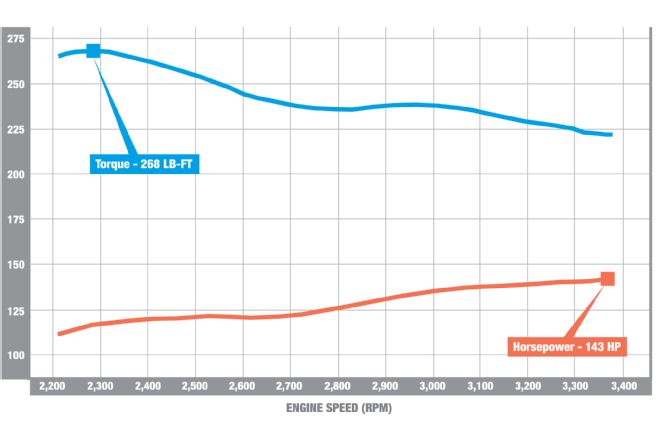
| 2002 Volkswagen Jetta TDI After Injectors Installed Dyno
Our final dyno pull yielded 30 more horsepower and another 50 lb-ft of twist. Notice how long the torque curve hangs around—and the Jetta is still making 225 lb-ft at the end of the run. With this kind of torque on tap, throttle response is instant and passing is a cinch in Overdrive.
 | 2002 Volkswagen Jetta TDI Base Dyno Run
Unfortunately, the Volkswagen Jetta 's newfound power (and especially its torque) has wreaked havoc on the clutch that came with the five-speed manual transmission. We’ll address a slipping clutch next time, as well as add the latest turbocharger available for ALH engines.
| 2002 Volkswagen Jetta TDI Base Dyno Run
Unfortunately, the Volkswagen Jetta 's newfound power (and especially its torque) has wreaked havoc on the clutch that came with the five-speed manual transmission. We’ll address a slipping clutch next time, as well as add the latest turbocharger available for ALH engines.
 | 2002 Volkswagen Jetta TDI Stock Auto Transmission
After the 01M automatic let loose, its replacement was this 02J five-speed manual unit from the same era Jetta TDI. Swapping out the automatic for a manual transmission is common in the Jetta world. For one, the cost of replacing the automatic with a new one often costs more than installing a simpler, more reliable standard transmission. And two, the manual transmissions have proven to last for hundreds of thousands of miles.
| 2002 Volkswagen Jetta TDI Stock Auto Transmission
After the 01M automatic let loose, its replacement was this 02J five-speed manual unit from the same era Jetta TDI. Swapping out the automatic for a manual transmission is common in the Jetta world. For one, the cost of replacing the automatic with a new one often costs more than installing a simpler, more reliable standard transmission. And two, the manual transmissions have proven to last for hundreds of thousands of miles.
 | 2002 Volkswagen Jetta TDI 5 Speed Transmission
For roughly $3,000, Jason’s Turbo Diesel Repair in Oregon, Wisconsin, performed all the work of getting this five-speed into the ’02. Afterward, mileage immediately increased from the low 40s (mpg) to mid-to-upper 40s on the highway.
| 2002 Volkswagen Jetta TDI 5 Speed Transmission
For roughly $3,000, Jason’s Turbo Diesel Repair in Oregon, Wisconsin, performed all the work of getting this five-speed into the ’02. Afterward, mileage immediately increased from the low 40s (mpg) to mid-to-upper 40s on the highway.
 | 2002 Volkswagen Jetta TDI Motor Mounts
Replacing the 217,000-mile, 12-year-old motor mounts were these Street Density units from Kerma TDI. Built to 034Motorsport’s specifications by OE suppliers, these solid rubber mounts come in a complete set, are 25 percent stiffer than stock, and provide a noticeable damping improvement over the factory versions.
| 2002 Volkswagen Jetta TDI Motor Mounts
Replacing the 217,000-mile, 12-year-old motor mounts were these Street Density units from Kerma TDI. Built to 034Motorsport’s specifications by OE suppliers, these solid rubber mounts come in a complete set, are 25 percent stiffer than stock, and provide a noticeable damping improvement over the factory versions.
 | 2002 Volkswagen Jetta TDI Q Loader Programer
Next, it was time to see how big of a difference a tune could make (see page 142 for the tuned dyno results). Using this Q-loader programmer from Kerma TDI, a custom file was uploaded to the car’s ECU. The programmer itself connects to the diagnostic port, stores the stock tuning file, and can hold up to two modified ECU files. It can also read (and clear) diagnostic trouble codes.
| 2002 Volkswagen Jetta TDI Q Loader Programer
Next, it was time to see how big of a difference a tune could make (see page 142 for the tuned dyno results). Using this Q-loader programmer from Kerma TDI, a custom file was uploaded to the car’s ECU. The programmer itself connects to the diagnostic port, stores the stock tuning file, and can hold up to two modified ECU files. It can also read (and clear) diagnostic trouble codes.
 | 2002 Volkswagen Jetta TDI Tranny Swap Dyno
To give you an idea how much horsepower was lost through the automatic transmission, the Jetta was dyno’d right after the transmission swap was complete, and we decided to run the car with no programmer in the mix. Here you can see it made 89 hp with the manual transmission and no aftermarket tuning vs. 93 hp with the automatic transmission and a hot tune. That’s only a 4hp difference, and the car was actually making 15 lb-ft more torque.
| 2002 Volkswagen Jetta TDI Tranny Swap Dyno
To give you an idea how much horsepower was lost through the automatic transmission, the Jetta was dyno’d right after the transmission swap was complete, and we decided to run the car with no programmer in the mix. Here you can see it made 89 hp with the manual transmission and no aftermarket tuning vs. 93 hp with the automatic transmission and a hot tune. That’s only a 4hp difference, and the car was actually making 15 lb-ft more torque.
 | 2002 Volkswagen Jetta TDI After The Programer Dyno
Picking up 24 hp and 56 lb-ft, the Jetta TDI was now getting 113 ponies to the front wheels thanks to the Q-loader programmer. While 24 hp doesn’t seem like a lot, it would’ve effectively shaved nearly a second and a half off the 3,200-pound car’s quarter-mile sprint (18 flat vs. mid-16s).
| 2002 Volkswagen Jetta TDI After The Programer Dyno
Picking up 24 hp and 56 lb-ft, the Jetta TDI was now getting 113 ponies to the front wheels thanks to the Q-loader programmer. While 24 hp doesn’t seem like a lot, it would’ve effectively shaved nearly a second and a half off the 3,200-pound car’s quarter-mile sprint (18 flat vs. mid-16s).
 | 2002 Volkswagen Jetta TDI Injectors
Turning their attention to the injectors, the guys at Randall’s once again contacted Kerma TDI. With plans to eventually make in excess of 150 hp with the car, Kerma sent Randall’s a set of its Stage 1 Bosio DLC 1019 injectors, which can support up to 160 hp with the right modifications. The injectors feature brand-new Bosio nozzles; the DLC acronym stands for diamond-like carbon coating. The coating covers all the internal needle’s sliding surfaces to reduce friction and is said to double the service life of the nozzle. The DLC coating is utilized (and recommended) to help the nozzle needle survive ULSD fuel’s lack of lubricity.
| 2002 Volkswagen Jetta TDI Injectors
Turning their attention to the injectors, the guys at Randall’s once again contacted Kerma TDI. With plans to eventually make in excess of 150 hp with the car, Kerma sent Randall’s a set of its Stage 1 Bosio DLC 1019 injectors, which can support up to 160 hp with the right modifications. The injectors feature brand-new Bosio nozzles; the DLC acronym stands for diamond-like carbon coating. The coating covers all the internal needle’s sliding surfaces to reduce friction and is said to double the service life of the nozzle. The DLC coating is utilized (and recommended) to help the nozzle needle survive ULSD fuel’s lack of lubricity.
 | 2002 Volkswagen Jetta TDI Injectors 02
Notice the injector on the right is taller and equipped with a wiring harness? This is the number 3 injector in the 1.9L ALH engine, which features the needle lift sensor.
| 2002 Volkswagen Jetta TDI Injectors 02
Notice the injector on the right is taller and equipped with a wiring harness? This is the number 3 injector in the 1.9L ALH engine, which features the needle lift sensor.
 | 2002 Volkswagen Jetta TDI Injector Tool
Making removal and installation of its injectors as easy as possible, Kerma TDI supplied a puller tool with them, as well as all-new OE sealing washers. There is also good peace of mind knowing that all injectors are flow tested and balanced as a set before being shipped out.
| 2002 Volkswagen Jetta TDI Injector Tool
Making removal and installation of its injectors as easy as possible, Kerma TDI supplied a puller tool with them, as well as all-new OE sealing washers. There is also good peace of mind knowing that all injectors are flow tested and balanced as a set before being shipped out.
 | 2002 Volkswagen Jetta TDI Adjusting The Injectors
In order to take full advantage of the new injectors, the VE rotary injection pump’s injection quantity had to be adjusted. Kerma TDI supplied the T-30 Torx bit socket required to access the pump’s quantity adjuster. To make a long story short, injection quantity levels are all over the place from the factory, with some having higher and lower fuel quantity values than others. For more fuel (which we needed), we moved the quantity adjuster arm toward the driver side of the car.
| 2002 Volkswagen Jetta TDI Adjusting The Injectors
In order to take full advantage of the new injectors, the VE rotary injection pump’s injection quantity had to be adjusted. Kerma TDI supplied the T-30 Torx bit socket required to access the pump’s quantity adjuster. To make a long story short, injection quantity levels are all over the place from the factory, with some having higher and lower fuel quantity values than others. For more fuel (which we needed), we moved the quantity adjuster arm toward the driver side of the car.
 | 2002 Volkswagen Jetta TDI After Injectors Installed Dyno
Our final dyno pull yielded 30 more horsepower and another 50 lb-ft of twist. Notice how long the torque curve hangs around—and the Jetta is still making 225 lb-ft at the end of the run. With this kind of torque on tap, throttle response is instant and passing is a cinch in Overdrive.
| 2002 Volkswagen Jetta TDI After Injectors Installed Dyno
Our final dyno pull yielded 30 more horsepower and another 50 lb-ft of twist. Notice how long the torque curve hangs around—and the Jetta is still making 225 lb-ft at the end of the run. With this kind of torque on tap, throttle response is instant and passing is a cinch in Overdrive.